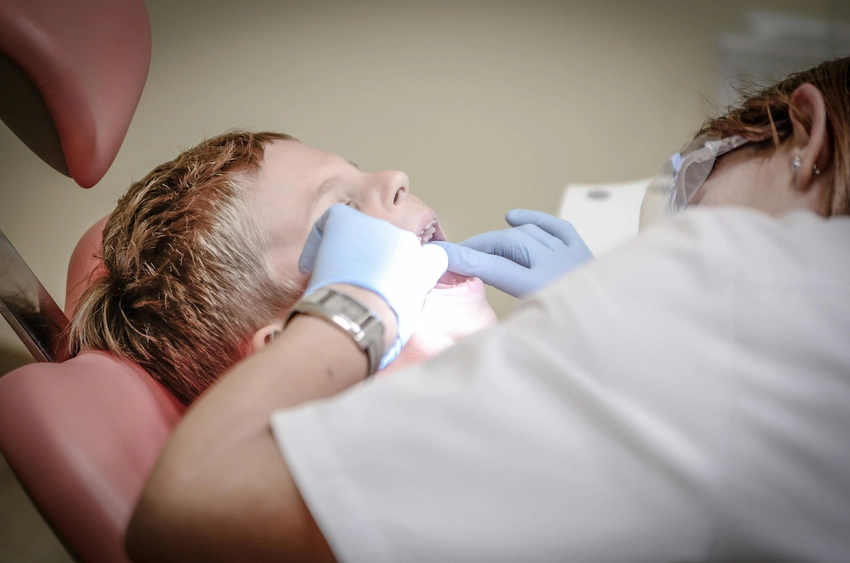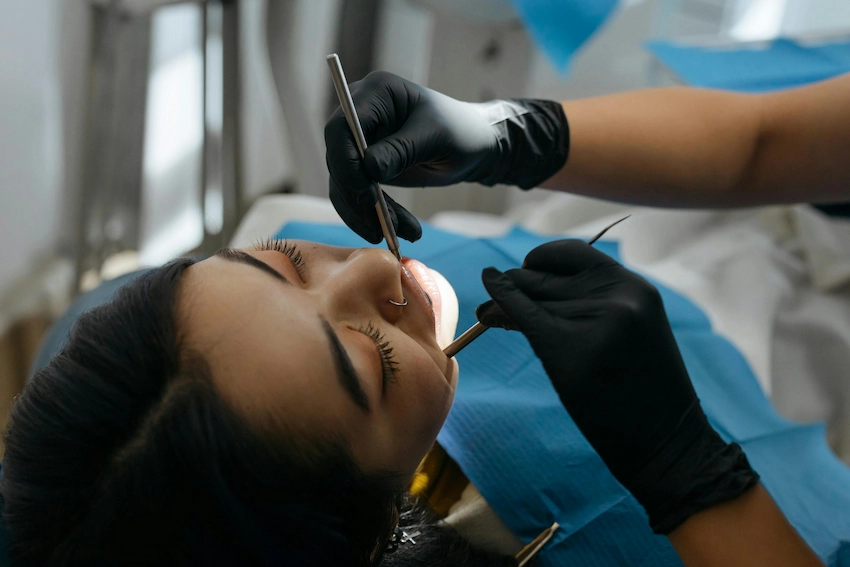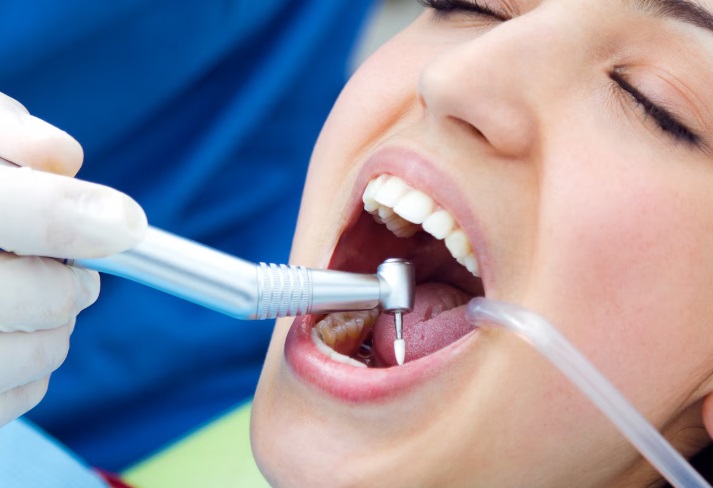🦷4 Home Remedies for Teeth Sensitive to Cold

Have you ever experienced sudden sharp pain in your teeth while drinking an iced latte or biting into ice cream? Or even shivering just from the cold air outside? If so then you are likely suffering from tooth sensitivity to cold and aren’t the only one. This problem affects a great number of individuals and basically means that people can’t do even the simplest tasks, for example, a glass of cold water, or the joy of a smoothie, without severe teeth pain.
However, the good news is that the are many solutions. They are natural and one of these is even in your pantry. This means that with a little patience and time, all the discomfort and pain can be easily treated and you can have your teeth back. There are lots of reasons you might want to find a holistic remedy outside a dental care visit, and this guide is, therefore, meant for you, even if you aren’t experiencing any dental problem just yet.
What Are Cold Sensitive Teeth, and What is the Cause of that Sensitivity?
Erosion of the enamel is the only reason teeth should not feel any discomfort while in contact with cold, no matter how severe the sensation may be. Nevertheless, if this happens, it is a signal that the person suffering from cold-sensitive teeth whose enamel has worn off, thus the exposure of the inner dentin layer which is very responsive to the temperature difference, is a common problem.
This section of the teeth contains tiny tubules leading. The moment a nerve in the tooth has been subjected to a stimulus from cold air or a beverage, it produces an effect that is similar to ringing the bell of the tooth’s nerve. It is at this point that the pain starts to become evident.
What are the most common triggers and causes of tooth sensivitiy due to cold?
- Acidic foods, excessive brushing, or excessive use of whitening detergents can be factors that lead to the wearing away of the outer layer of a tooth known as the enamel.
- The rooting of the gum, which has the effect of exposing the roots of the teeth.
- Some painless internal injuries to the tooth known as cavities.
- Fractures or hairline cracks are present on the fleshy part and may lead to cold sensitivity.
- Grinding or clenching of the teeth may contribute significantly to wear and even fracture of the teeth.
Some dental procedures such as the filling of teeth or crowning them may cause short-term sensitivity of the teeth.
Remarkable Measures You Can Use at Home to Alleviate Cold Sensitivity in Teeth

It is important to know that if you’re experiencing cold sensitivity in your teeth like you do it’s very mild or moderate, it does not automatically follow that you have to go see a dentist immediately. You can actually do something yourself to relieve the pain without thinking about the inconvenience of having to go to the clinic which most likely entails long waiting hours that always turns people off. Research has shown that there are several effective home remedies for cold sensitive teeth that you can use and these tips will enable you to treat your problem as well as improve the state of your oral health without much effort placed on your part.
1. Use of Toothpaste That Is Designed to Desensitize the Teeth
If you choose one product from this list, make sure that it is toothpaste especially made for sensitive teeth. The unique properties of desensitizing toothpaste create a block to pain messages that travel from the area of the tooth to the nerve, thus reducing the amount of pain one experiences when using cold thermals.Hence, when shopping for desensitizing toothpaste, to ensure its effectiveness, look for the following active ingredients in particular:
- Potassium nitrate, which is effective in reducing the sensitivity of the nerves due to its action on them.
- Stannous fluoride, this is a fluorine compound that is effective in the restoration of the enamel layer of the tooth.
2. Warm Salt Water Rinse
Warm salty water gargle—a folk mediсine that’s been passed on from generation to generation—has been effective in dealing with lots of problems in the mouth area like relieving scratchy throat, reduced teeth and gums’ inflammation, or simply for general cleanliness. Furthermore, this solution is so easy to make and the benefits of it are really outstanding: for its being antibacterial and anti-inflammatory, that is, it can not only stop the growth of bacteria, but also the spread of germs and reduce the inflammation of the mucous membranes in case of a throat infection.
How exactly do you carry out this effective process for teeth sensitivity to cold? Well, it is as simple as mixing {strikethrough}Normal Routine says to mix just half a teaspoon of salt into one full glass of warm water, and rinse two times every day after brushing your teeth preferably after meals. This warm salt water rinse helps you not only cleanse your oral cavity but also keep bacteria away. However, do not forget to brush your teeth properly; the lush yet simple warm salt water rinse cannot replace good dental hygiene, only supplements it!
3. Coconut Oil Pulling
Certainly, oil pulling may seem quite old-fashioned compared to all these high-tech solutions available today for dental care but it has gained back popularity because many studies indicate that this remedies helps reduce plaque buildup on the teeth and may help strengthen the gums hence making it a useful method for gradually overcoming this significant problem, looseness of teeth and heightened sensitivity in the mouth area.
As holistic as it has been for thousands of years in India, using coconut oil as an effective health-promoting agent; the question is how to do or say sari and achieve mouth-cleaning magic? Just take one tablespoonful of the unadulterated coconut oil and swish it deep down into your oral cavity for about ten to twenty minutes daily. Make sure that you breathe slowly and allow the oil to work its magic. After that, do not be hasty!
4. Cut Down on Acidic Foods
While delicious, the way acidic drinks and snacks actually taste, the pain that sometimes accompanies consuming acidic foods or soft drinks can be something like nails on a chalkboard. These foods can actually weaken the enamel, which acts like a barrier against temperature and other nuisances of tooth sensitivity, leading to vulnerable areas exposed deep in the tooth layer underneath. The consumption of these tasty but sometimes harmful items puts the protective enamel on your teeth at risk.
Acidic foods can roil against your teeth and contribute to your deteriorating dental health, what are some examples? Citrus fruits like oranges, lemons, and grapefruits, which are refreshing, are excellent sources of vitamin C but they are also highly acidic and can possibly damage tooth enamel
Daily Habits and Routines You Must Do to Protect Teeth That Are Sensitive
It is advisable to change some daily habits and use some natural home remedies as an important way of limiting the extent of damages on the teeth and improving the efficiency of these methods in remedying sensitivity on teeth of the affected person. This will enable you to deal and cope with the different impacts and problems of sensitive teeth where although they are not entirely, they will become more bearable when applied as holistic actions.
- Toothpaste with fluoride, by using it gently but effectively twice a day, can drive your teeth to less sensitive and painless comfort by the hardening of enamel and diminishing of discomforts.
- Regular flossing of your teeth every day will in a big way reduce the probability of food remaining in between the teeth.
- You can kill bacteria by using mouthwashes that are made explicitly for people with sensitive teeth and have anti-bacterial properties, thus solving your sensitivity and other dental issues.
- The damaging habits of the teeth that you must avoid at all costs because they create fractures damaging teeth include taking hard candies or ice or chewing on them that may also cause sensitivity to sensitive teeth.
- Another good piece of advice is to consider the use of a dental night guard that will greatly help you to stop grinding and clenching the teeth of the already weakened state of your teeth with the resultant damage and pain.
- Despite the fact that everyone wants to have white teeth, using too many of the teeth whitening products will still do one more harm than good, especially for the folks with sensitive teeth, hence the best thing is to talk to the dentist for advice on the best teeth whitening products that are good for people with this issue.
- Regular dental check-ups every six months will help in the early detection of any problems and also maintaining your oral health thus keeping the situation of the persons’ gums stable is very important as it may be a factor in sensitivity.
When You Should Call Your Dentist for Teeth Sensitivity To Cold or Pain

Though at-home treatments would suffice for teeth sensitivity to cold, only an expert can treat the underlying cause of extreme or unending tooth sensitivity. Don’t ignore the dental health tips you have learned and change your lifestyle to take care of your teeth, however, there are specific scenarios that will require you to seek help from professionals in these cases.
- The level of pain is high, so high to the point that even normal activities become difficult; no one should have to endure.
- If the teeth sensitivity to cold persists for more than three weeks and bothers you continuously or prevents you from enjoying comfortable living, this should alert you.
- Have you noticed your teeth had cracks, decay that were visible, or your gums seem recessed and are in need of professional care immediately to avoid further damage?
- In case one has signs of swelling, bleeding, or pus oozing out (indicating possibly an infection), then they should not.
Frequently Asked Questions About Home Remedies for Teeth Sensitive to Cold
To heal tooth sensitivity to cold, start by using a desensitizing toothpaste containing potassium nitrate or stannous fluoride. These ingredients block pain signals and strengthen enamel. Avoid acidic foods, brush with a soft-bristled toothbrush.
To cure teeth pain caused by a cold or sinus pressure, first identify the source. If it’s sinus-related, decongestants, warm compresses, and hydration can relieve pressure on upper teeth. If it’s true cold sensitivity, use warm salt water rinses, avoid cold air exposure, and apply clove oil to numb discomfort. For persistent or sharp pain, seek a dental evaluation to rule out cavities or gum issues.
Yes, mild tooth sensitivity can often be managed naturally. Remedies like oil pulling with coconut oil, green tea rinses, aloe vera gel for gums, and limiting acidic food intake can help reduce discomfort. Switching to a gentle oral care routine and maintaining proper hygiene are key for long-term relief.
To relieve sensitive teeth immediately, use a sensitive toothpaste and apply it directly to the affected area for fast relief. Rinse with lukewarm salt water to reduce inflammation and avoid extremely hot or cold foods.
The best toothpaste for sensitive teeth should contain potassium nitrate or stannous fluoride. These ingredients help block pain signals and rebuild enamel.




